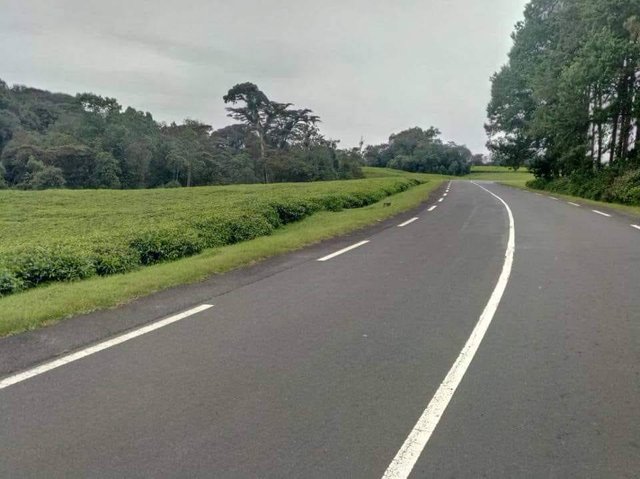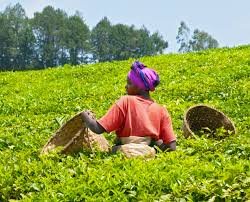RWANDA TEA
.jpg)
If you have travelled attended any Agricultural workshops, you’ve heard all people wondering the taste of the Rwanda tea. If you have never attended or tasted I assure you that after reading this you will have a desire of taking at least one cup.
Do you like taking tea? Are you a hotel manager? Do you have a coffee and tea shop but the customers are limited? The solution is to start preparing for them RWANDA TEA.
Tea is pone of the main Rwanda's cash crops planted on the hillsides of the high altitude 1 900 - 2 500 m and well drained marshes of 1 550- 1 800 m of altitude.
Tea was introduced in Rwanda by the Belgians who were colonizing Rwanda in 1 952 and it covers a wide range of 7 Rwandan districts of Southern, Western and Northern provinces of Rwanda covering a total area of 25 000 ha.
.jpg)
Rwanda tea plantations
Most of the tea produced in Rwanda is Black tea, Green tea, authentic tea and organic tea and rarely spicy tea can also be produced but at the order of the willing customers (tea producers)
The government of Rwanda through the ministry of the agriculture has emphasized on increasing the quality and quantity of the tea production through the setting up and estimations of addressing the capable infrastructures such as roads and energy, construction of irrigation schemes, soil erosion measures, tea field acreage increase, encouraging cooperative unions, providing good quality seedlings to the farmers and chemical fertilizers appliance.
STRATEGIES FOR RWANDA TEA DEVELOPMENT.

Roads are constructed along the tea plantation areas.
Tea expansion in terms of area was increased from the current 15 000 ha to around 18 000 ha.
A total of 5 new tea factories were completed and started operational in 2014.
Support infrastructure related to the above factories need to be fast tracked. This is in form of roads, energy and water.
Venturing in Value addition and diversified products shall need to be better streamlined.
Emphasis on addressing the infrastructure problems like roads and energy.
Extending irrigation schemes to the tea fields.
Put measures to prevent soil erosion.
Increasing tea fields acreage
Encouraging cooperative unions
Provision of good quality seedlings

Gisovu tea plantations
RWANDA TEA AND EXPORT.
We produce one of the best quality teas in the world. Approximately 97.3% is exported in raw form.
The 60% of Rwanda Tea is sold in Auctions, 37.3% is sold directly and 2.7% is sold locally.
Every week at the Mombasa auction, Rwanda tea especially Gisovu BP1 fetches the highest price.
THE RWANDA TEA QUALITY AND GRADES.
Rwanda tea has gained enormous global acceptability because of its quality. The following factors contribute to its quality.
• Rwandan climate.
• Abundant rainfall of 2 m per year on average.
•Acidic soils of pH 4.5 to 5.5Due to the high-elevated grounds where Rwanda tea grows, its strength, bright color, flavor and consistency in manufacturing, its renowned all over the world as a superior beverage.
Nature has endowed Rwanda with the best ecological conditions, making Rwanda Tea unique and consistent in quality
Sufficient and willing labor that produce quality tea.
A good altitude of 1800 m above sea level.
Over 72% of the cultivated area (9,071 ha) is situated in the high mountain areas.
Rwanda tea was the winner of the tea cupping competition that was held during the African tea convention and exhibition that took place since 2011.
THE MANAGEMENT OF RWANDA TEA BUSINESS AND SELLING.
There are several strategies that the ministry of Agriculture and NAEB have introduced to increase the sales of the Rwanda tea. These include:

Cooperatives of farmers are set to plant and harvest tea.
Management of tea cooperatives by making a follow-up on harvesting tea leaves n time.
Efforts' to reduce fertilizer prices by having tea fertilizers produced in Rwanda.
Land consolidation for new tea plantations.
Consideration pruning and replacement of tea field.
THE LEVEL OF RWANDA TEA CONSUMPTION AND DRINKING BY RWANDESE.
Rwandese like tea especially Rwanda tea at the high average. There are several companies that sell Rwanda tea in a value added form. Rwandans have a culture of drinking tea especially in the morning and evening. 99% of the tea consumed is black tea and 1% of green tea.
Tea is drunk in homes, offices, hotels and restaurants. Local tea consumption is still very low our compared to our targets of at least 3% of the total tea produced in Rwanda.
Have you now got a desire of taking tea? Don’t hesitate commanding Rwanda tea where ever you are.
I hope you have got all the information and you will enjoy a taste from a thousand hills Rwanda Tea.
I am @jackarphillip giving you an information of the world’s best tea Rwanda Tea.
Enjoy the taste.